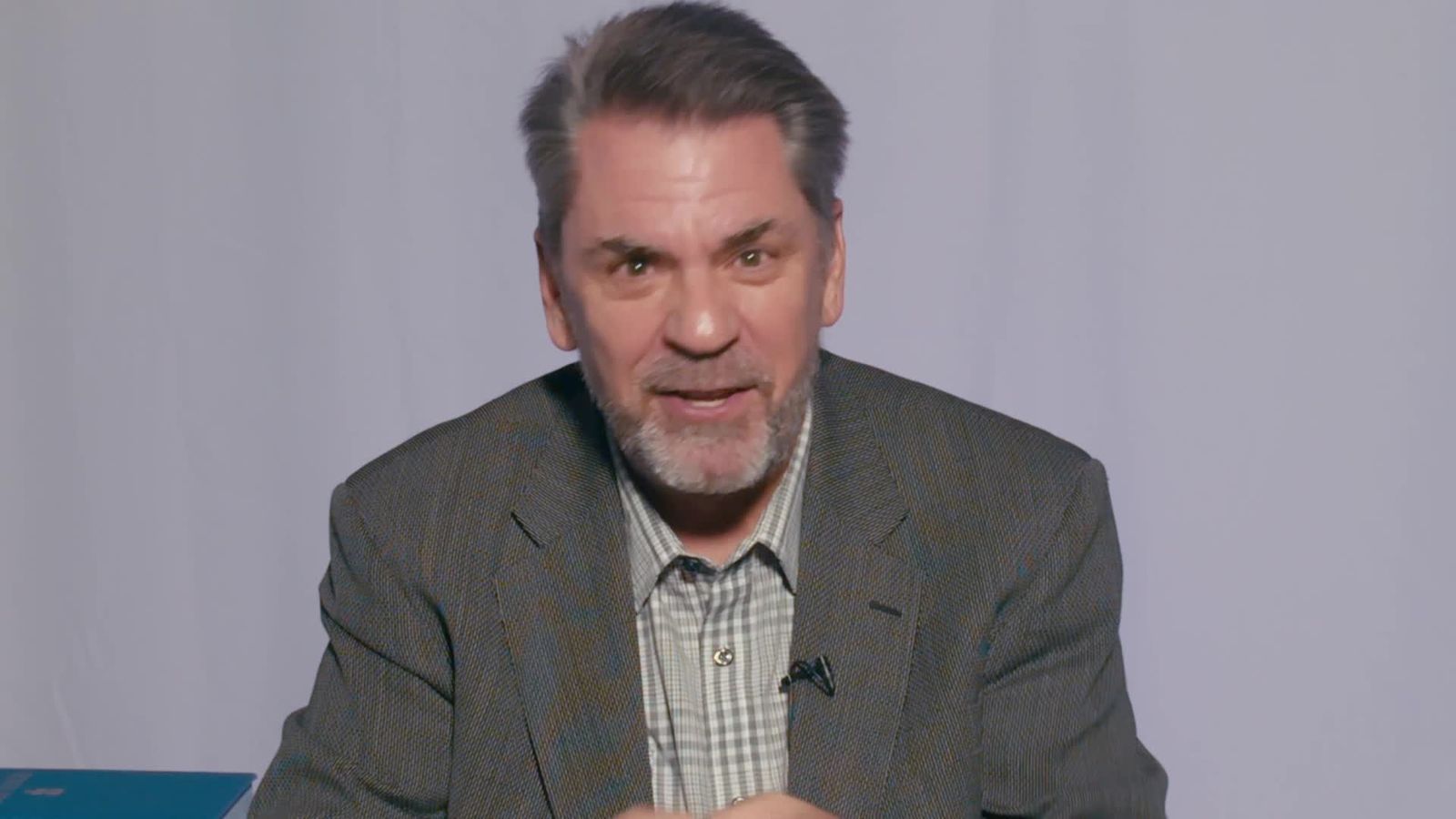Oct 22nd: Welcoming: An Expansive Love, with Rev. Dr. Steven Koski.
A Part of the Series:
Rev. Dr. Steven Koski
Other Articles in:
WATCH:
Welcoming: An Expansive Love with Rev. Dr. Steven Koski. Series: Postures for a Christ-Centered Life A Spacious Christianity, First Presbyterian Church of Bend, Oregon. Scripture: John 14:6, Ephesians 3:5.
You’re invited to listen as Dr. Steven Koski asks how we can improve understanding between people of all faiths and backgrounds. And how it might be our role to build understanding. We can do this by praying together, seeing our shared humanity, and recognizing that we all belong to one another as brothers and sisters.
Transcript:
This past week has been the week of prayer for world peace. People across the world from many faith traditions, speaking many different languages, united for one purpose, to pray for peace. The International prayer for peace is this leads us from death to life from falsehood to truth. Lead us from despair, to hope, from fear to trust. Lead us from hate, to love, from war to peace, lead, peace, fill our hearts, our world, our universe. Peace, peace, peace. One of the most spiritual experiences I’ve ever had in my life was attending an interfaith service on September 12 2001, the day after 911 At fourth Presbyterian Church in Chicago, it’s a large sanctuary and every every seat was filled with people. And people were standing in the aisles. The pastor of fourth Presbyterian spoke, the Archbishop of the Catholic Church representing the Diocese of Chicago spoke, an imam from a nearby mosque spoke. And then the rabbi from the largest synagogue in Chicago, got up to say a prayer. And when he stood up to pray, he, he did the most remarkable thing. He asked all of us who are gathered, to pray together out loud, each in our own voice, using our own faith language. And we did there were several 1000 People gathered, and we did we prayed. And our voices mingled Hebrew, English, Arabic, our prayers woven together as one prayer, filling that Christian sanctuary rising to the One God of us all, the one God who hears every prayer, the one God, in whose image each and every one of us has made. The one God who loves each and every one. And it was love and mercy exceeds anything we could ever think, or imagine. In that sanctuary, there was one broken heart, reaching out to one God. In that room, there was many in the one and there was one in the mini. The Psalmist said, Behold, how beautiful it is. When brothers and sisters dwell together in unity. I can’t think of a more urgent and holy task at the moment than to break down the barriers that divide us and build bridges of cooperation and understanding among people of different faiths. Gandhi once said, The world is tired of hate. That statement couldn’t be more true. I think that the prayer that Jesus taught, that we Christians call the Lord’s prayer, Jesus said, Pray this way. And the very first phrase that he teaches us is our father. Notice he didn’t say, your father or their father or, or my father. He said, This is how you should pray. Our our Father, that one word, our changes everything. We all belong to God and in belonging to God. We belong to each other. Archbishop Desmond Tutu wrote a book titled God, this might come as a surprise. But God is not Christian. Where he said, The failure of our day is that that we’ve actually forgotten whether we like it or not, we’ve forgotten that we belong to one another. There will be no peace in the world, he said. Until we recognize, we belong to one another. Eugene Peterson in the Message translation of Ephesians, three, five. He expressed it this way. There is a oneness that permeates all things. The creators desire for all creation is peace, and unity, even in our differences. There is a oneness that permeates all things beneath all of our diversity, behind all of our differences beyond all of our judgments and prejudice, beside Are illusion of separateness. There’s a unity, which makes us one. And I want to look at this from a Christian perspective, because that’s, that’s my perspective, I’m a passionate follower of the way of Jesus. Now I am often asked, is Jesus the only way to God? What about people of other faiths? Now, why would a god in whose image all people are created? A God, the Bible says, Who is a lover of all creation? Why would this god devise a plan of salvation that automatically excludes most of the human beings that have ever lived? It’s possible to affirm the unique revelation of God’s expansive love in the life, death and resurrection of Jesus. And, at the same time, affirm that religious diversity may also be part of God’s incredible design. Now there’s a verse in the Gospel of John that’s then use probably more than any other verse, To exclude people to hit people over the head, and claim that the Christian faith is really the only true faith and superior to other faiths. It’s John 14, six where Jesus says, I am the Way, the Truth, and the life no one comes to the Father, except through me. Now, this verse is often used to claim that that Jesus is the only way to God, which is exactly the opposite of the expansive, spacious, inclusive love that Jesus lived. So I’m curious if it’s possible to look at this verse from from a different angle to see it in a different light. Now, Jesus said, I am the way he didn’t say these six things about me or the way he didn’t say, Well, this doctrine is the way these beliefs you must have these beliefs, these beliefs or the way or this church over here is the way he said, I am the way could Jesus be saying that the unconditional love the mercy, that forgiveness to compassion, embodied in me, is the way to what is true the way to experience life the way to experience the fullness of God? Mahatma Gandhi said he was inspired to his commitment to the way of non violence by Jesus and reading His Sermon on the Mount. Gandhi said, I like your Christ. I just wish your Christians were a bit more like your Christ. Jesus said, Anyone who sees me has seen the Father. Know as Christians. We believe that if you want to know who God is, look at Jesus. If you want to know what love is, look at Jesus. We believe that we see the face of God in the face of Jesus that we see the heart of God in the heart of Jesus. Theologian Paul Tillich wrote, The particularity of Jesus’s life. The uniqueness and particularity of his life and message actually points to the universality of God’s unconditional love. As Christians, we believe that God is uniquely defined by Jesus. But that doesn’t mean that God is confined by Jesus. If God is confined by Jesus, I just think that makes God’s love and God, too narrow, too small. So if Jesus is the way you will not use a religion to exclude others, because Jesus didn’t. We will. We won’t use our religion to judge others. Because Jesus didn’t. We will do everything we can to extend compassion, to forgive, to show mercy to our neighbors, to love our enemies, to welcome strangers to break down barriers of division to be peacemakers. to include those others exclude because this is the radical way, truth and life that Jesus asked us to follow. Now the God revealed in Jesus is not an either or God insisting we take sides, but a both and God whose love is more expansive than we can possibly imagine. Now, having said all of this, believe it or not, I’m an evangelist at heart. I believe the good news of Jesus is good news for everyone. I believe Jesus is the answer to what a lot of people in this world are looking for. I’m excited to share the joy and the love that I know in Christ with anyone and everyone. I just never assume people of other faiths know any less joy than I do. I never assume that somehow, my joy is better. I never assumed that, that their experience of God is inferior to my experience of God. Now I’m eager to share my faith. I’m also really eager to receive and to learn from others. Rather than a posture of judgment, or superiority. You know, I choose curiosity. You know, rather than argue and, and try to convert and to prove that I’m right. I will generally say, Tell me your story. Tell me about your experience of God. Transformation never happens in headspace, where we try to prove that my ideology is better than your ideology. transformation happens in heartspace where we sit down and share stories with one another. The goal of Jesus was not to bring people to Christianity. The goal of Jesus was to bring people to love. If that happens through Christianity, I celebrate that. I mean, it’s the story that makes sense to me. It’s the story that that has changed my life. And it’s the story that I believe can change your life. But if people come to love through another religion or, or no religion at all, I celebrate that to the world doesn’t need more people professing that they’re right, professing that their way is the only way with the world needs is more love. And more and more people becoming more loving. So my faith in Jesus is not defined by its borders, where you’re either either in or out, you either believe or you don’t believe. My faith in Jesus is defined by its roots. And as we go deeper and deeper into the roots of God’s love revealed in Jesus, we actually find there are no borders and the boundaries are erased. For Jesus, there was never a category of us in them or, or even us against them. The love revealed in Jesus was us for them. Jesus said, Follow me. I am the way love is the way and when we follow the way of Jesus, we’re led deeper and deeper into the love and the oneness that permeates all things. Jesus was a Jewish rabbi. So let me close with a story of another rabbi Who asked her congregation? How can you tell? When night has given way today? The congregation was perplexed and they pleaded rabbi, please tell us how can we tell when it’s when it’s no longer night and a new day has arrived. And the rabbi said, when you look into the eyes of another, no matter who they are, no matter where they come from, no matter no matter the color of their skin, no matter what they believe, or they don’t believe how they pray, or what name they use for God. When you look into the eyes of another and you see a brother or you see a sister, a new day has arrived. But if you look into the eyes of another, and you don’t see a brother or sister it is still night. And there was silence as the congregation absorbed the rabbi’s words and the rabbi continued. The hard, holy and healing work of people of all faiths is to call forth the dawn in the places where it is still dark. May it be so


